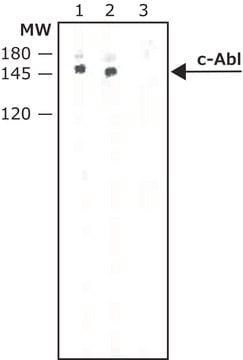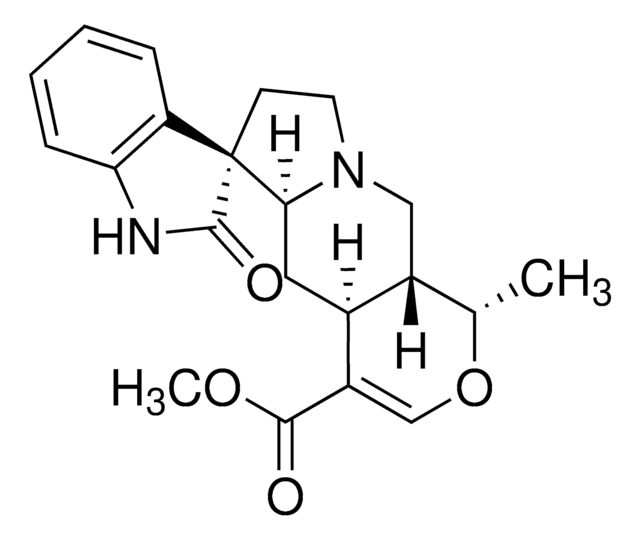487R-9
SMAD4 (MRQ-72) Rabbit Monoclonal Antibody
For In Vitro Diagnostic Use in Select Regions
Synonyme(s) :
Mothers Against Decapentaplegic Homolog 4 Rabbit Monoclonal Antibody
About This Item
Produits recommandés
Source biologique
rabbit
Niveau de qualité
Type de produit anticorps
primary antibodies
Clone
MRQ-72, monoclonal
Conditionnement
vial of 0.1 mL concentrate (487R-94)
vial of 0.1 mL concentrate (487R-94-RUO) Research Use Only
vial of 0.5 mL concentrate (487R-(95)
vial of 1.0 mL (concentrate (487R-96))
vial of 1.0 mL concentrate (487R-96-RUO) Research Use Only
vial of 1.0 mL pre-dilute (487R-97-RUO) Research Use Only
vial of 1.0 mL pre-dilute ready-to-use (487R-97)
vial of 7.0 mL pre-dilute ready-to-use (487R-98)
vial of 7.0 mL pre-dilute ready-to-use (487R-98-RUO) Research Use Only
Fabricant/nom de marque
Cell Marque™
Isotype
IgG
Contrôle
pancreas
Visualisation
cytoplasmic, nuclear
Description générale
Qualité
RUO - MQ100
Forme physique
Notes préparatoires
Note: This requires a keycode which can be found on your packaging or product label.
Autres remarques
Informations légales
Vous ne trouvez pas le bon produit ?
Essayez notre Outil de sélection de produits.
Certificats d'analyse (COA)
Recherchez un Certificats d'analyse (COA) en saisissant le numéro de lot du produit. Les numéros de lot figurent sur l'étiquette du produit après les mots "Lot" ou "Batch".
Déjà en possession de ce produit ?
Retrouvez la documentation relative aux produits que vous avez récemment achetés dans la Bibliothèque de documents.
Notre équipe de scientifiques dispose d'une expérience dans tous les secteurs de la recherche, notamment en sciences de la vie, science des matériaux, synthèse chimique, chromatographie, analyse et dans de nombreux autres domaines..
Contacter notre Service technique






